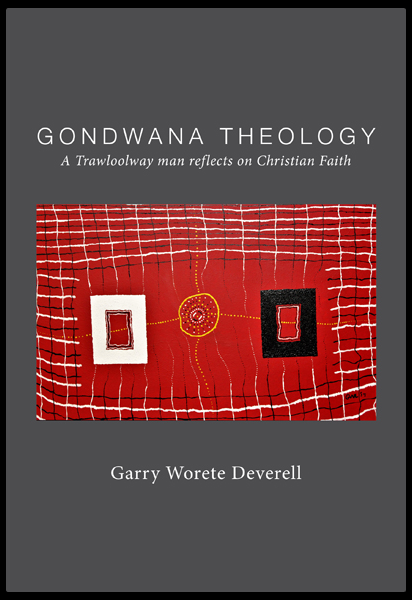 A Trawloolway man reflects on Christian faith, by Garry Deverell
A Trawloolway man reflects on Christian faith, by Garry Deverell
The Uniting Church has come a long way in its walk with Aboriginal people, but how deeply have we contextualised our theology in the full history of this place called Australia?
What colonial lenses do we still look at God and church through? What have we missed about our understanding of Jesus and the gospel by not fully appreciating Aboriginal perspectives?
These are some of the questions that Garry Worete Deverell, a Trawloolway man from northern Tasmania, has asked in this important contribution, to guide our reflection and practice of what being Christian means in the colonised land of Australia.
Deverell invites us, with a sometimes courageous vulnerability, to consider his own reconciling of Aboriginal spirituality and Christian scripture. He offers both profound insights and confronting challenges. Deverell turns a revealing light not only on our subtle and often unrealised Western dualism that can separate spirit from earth, but also on the reality of doing theology on invaded land.
What is an appropriate expression of reconciliation for the church to be taking? Where are the marks of racism still residing in our congregations and church institutions? How are churches giving leadership opportunities and promoting representation of Aboriginal people? What voice is the church raising on issues of injustice for First Nations people?
Finally, Deverell provides a significant selection of prayers that intimately capture the heart of his Gondwana theology. They are a beautiful expression of worship that can easily be used in Christian liturgies and a generous contribution to the life of the church in Australia. Deverell is in Anglican ministry and so while the prayers are more aligned to an Anglican liturgical expression, he also spent 22 years in the Uniting Church following his ‘Baptist beginnings’, so his commentary is similarly ecumenical in scope.
If anything is lacking, Gondwana Theology is brief in its detail. There is immediate depth, but much of the material begs for a greater delving and engagement with other thinkers and theologians. Perhaps, in part, this is due to the paucity of Australian theological work with a First People’s perspective for Deverell to build from.
Deverell does point to some others who have done such labour, but we can only hope that Gondwana Theology is a foretaste of a growing field of theological reflection.
Gondwana Theology is vital thinking for the Australian church. Deverell raises key questions for the church to consider and take action on. To simply muse on them may be of interest and assistance in developing an awareness of the Aboriginal context of our churches, but it is in acting on the inherent justice issues Deverell raises that we may fulfil a more authentic Australian expression of worship, witness and service.
Geoff Bice